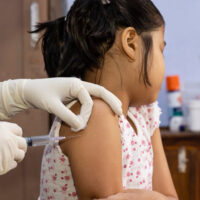Making Decisions About Your Child’s Medical Care After Divorce

Just because two parents get divorced does not mean that they are no longer required to work together when making decisions regarding their child’s welfare. In fact, for important decisions, like medical care, parents are usually legally obligated to reach those decisions together until the child reaches the age of majority.
Responsibility for Medical Treatment-Related Decision Making
Couples with minor children who decide to separate will only be able to officially finalize their divorce when they have grappled with issues related to child custody. This includes coming up with a time-sharing arrangement, as well as reaching an agreement on how future decisions will be made on important childcare-related issues, such as education, religion, and medical care. The former is referred to as parenting time, or physical custody, while the latter is known as parental responsibility, or legal custody. In most cases, parents, even when they don’t share parenting time equally, are required to work together when reaching a decision about the aforementioned matters.
Emergency vs Non-Emergency Medical Treatment
The granting of joint decision-making authority only applies in non-emergency medical situations. For true emergencies, it is the adult who is responsible for the child at the time that the emergency arises who can seek medical treatment without delay and without obtaining the other parent’s permission. Emergency situations often involve:
- Accidental serious injuries, like broken bones, lacerations that require stitches, and head trauma;
- A severe allergic reaction;
- A child ingesting a poisonous substance or non-edible object;
- An animal bite or attack; or
- A severe acute illness, such as appendicitis.
These situations often don’t allow for in-depth discussion between parents. This, however, is not true in non-emergency scenarios, where parents have the time to talk to a doctor about their treatment options, become informed about the risks of intervention, and even obtain a second opinion. Examples include deciding on the appropriateness of:
- Medications for depression, anxiety, or another mental condition;
- Cosmetic procedures;
- Hormonal contraceptives;
- Immunizations;
- Oral medications for dermatological issues; and
- Orthodontia.
Whether because of perceived health risks or concerns about the cost, parents often disagree about medical treatment in non-emergency situations. In these cases, it is often necessary to seek court intervention. One of the best ways to avoid this is to carefully decide how decisions will be made before the divorce is finalized. The more details there are in a parenting plan about how these determinations will be made, the easier it will be to avoid conflict at a later date.
An Experienced Florida Shared Parental Responsibility Lawyer
Disagreements about a child’s medical treatment is a common source of conflict between divorced and separated parents. Fortunately, you don’t have to grapple with these issues on your own, but can seek the help of an experienced Florida shared parental responsibility attorney, who can help you resolve these conflicts, and if possible, prevent them. Call Sandra Bonfiglio, P.A. for help. You can set up a free consultation by calling a member of our legal team at 954-945-7591 or by sending us an online message.
Sources:
flcourts.org/content/download/403367/3458536/995a.pdf
leg.state.fl.us/statutes/index.cfm?App_mode=Display_Statute&URL=0000-0099/0061/Sections/0061.13.html
